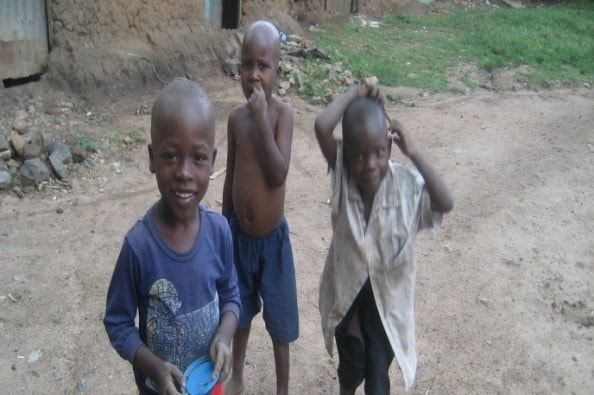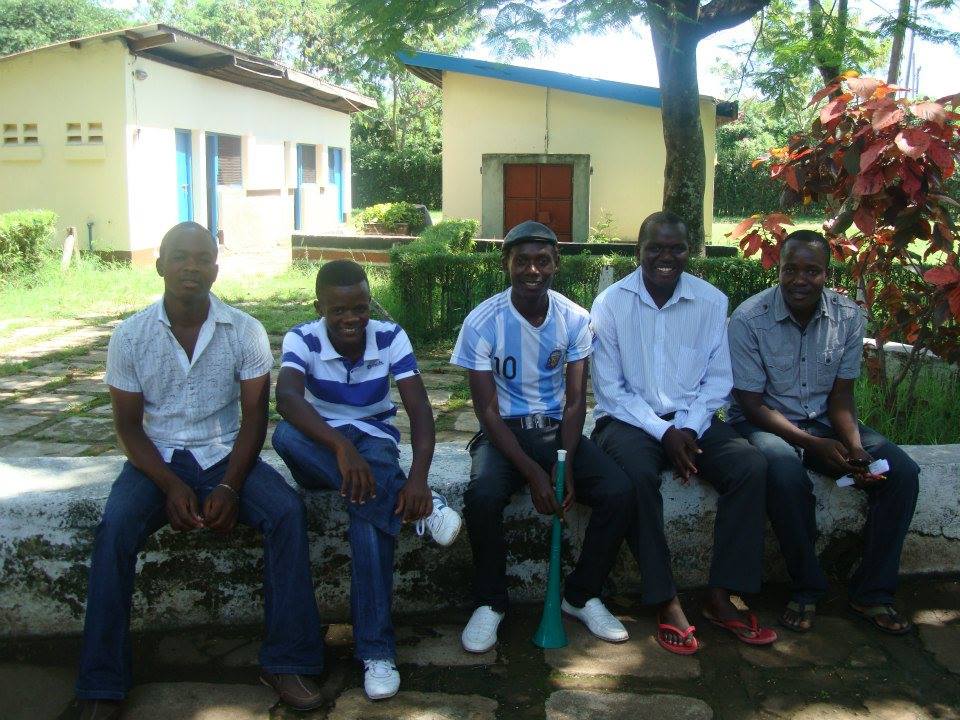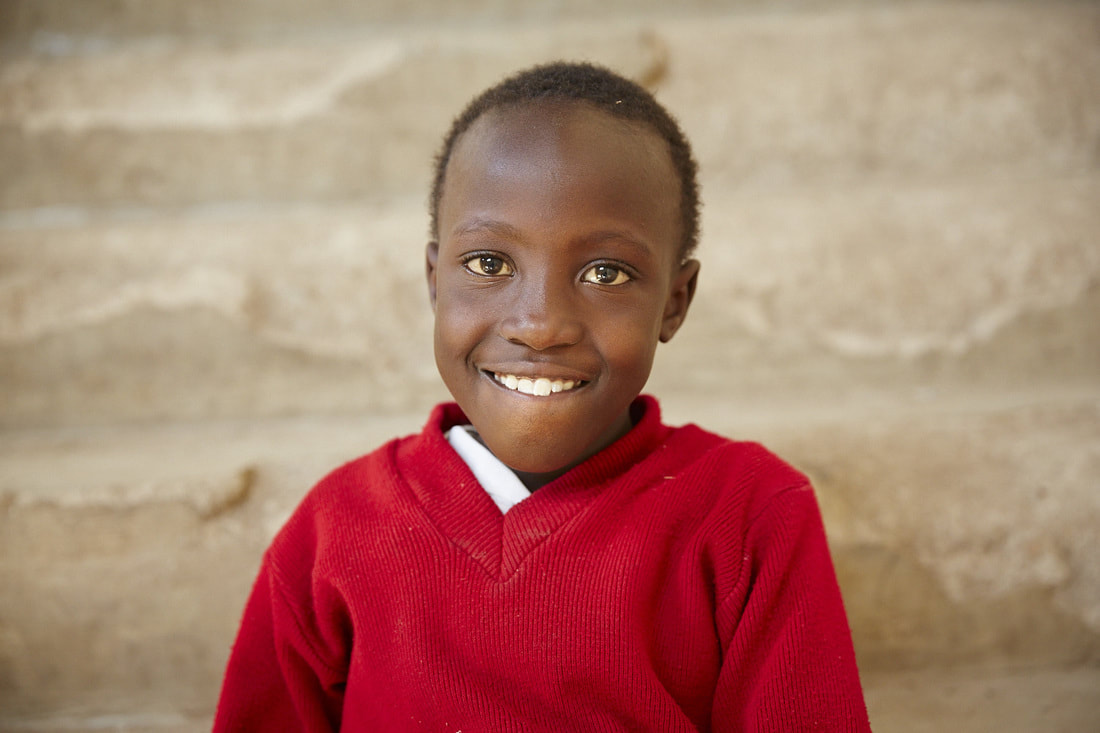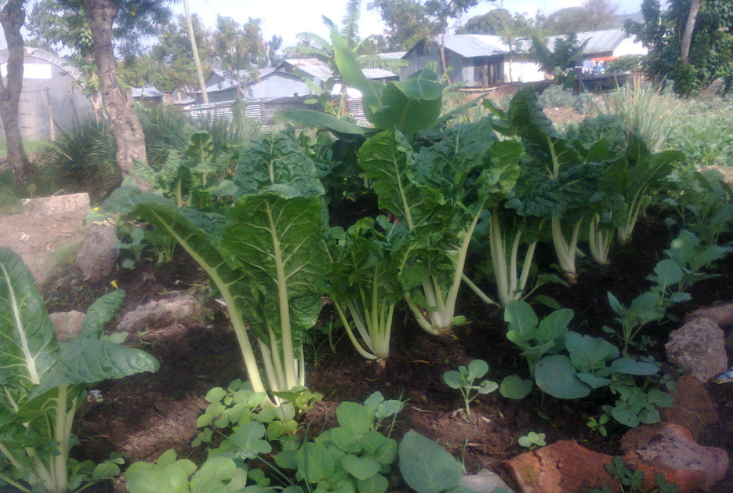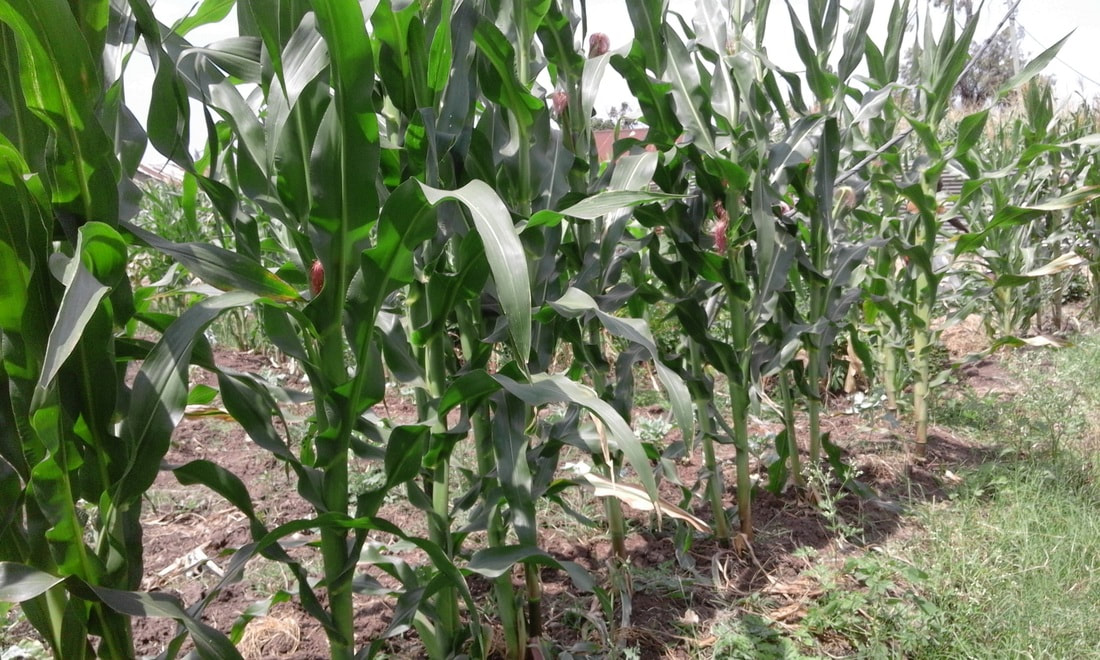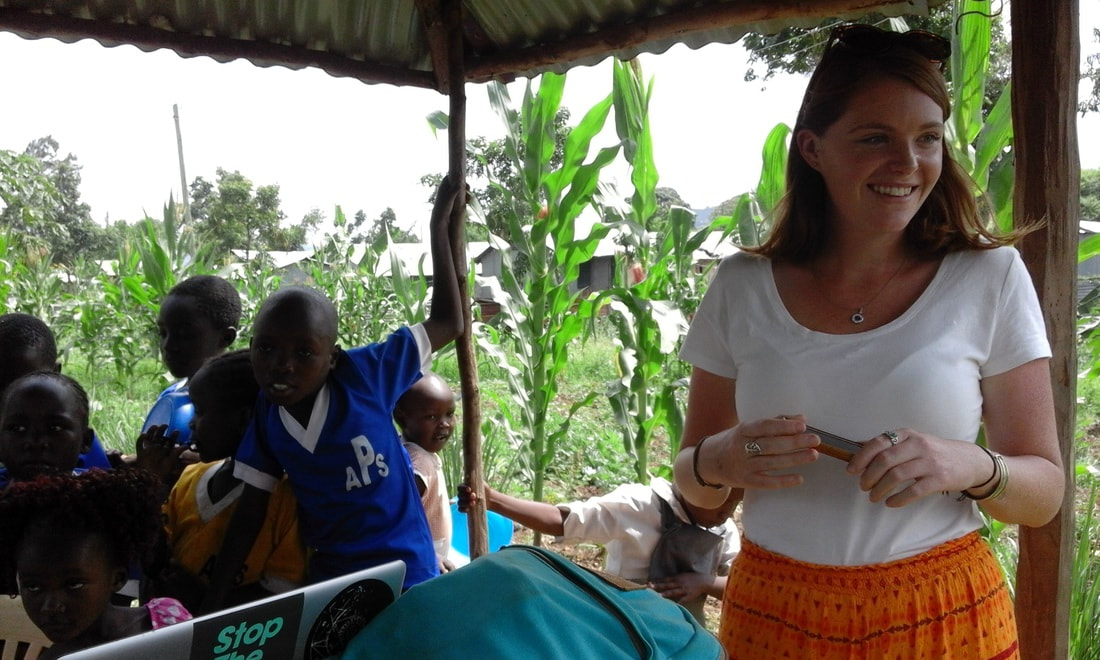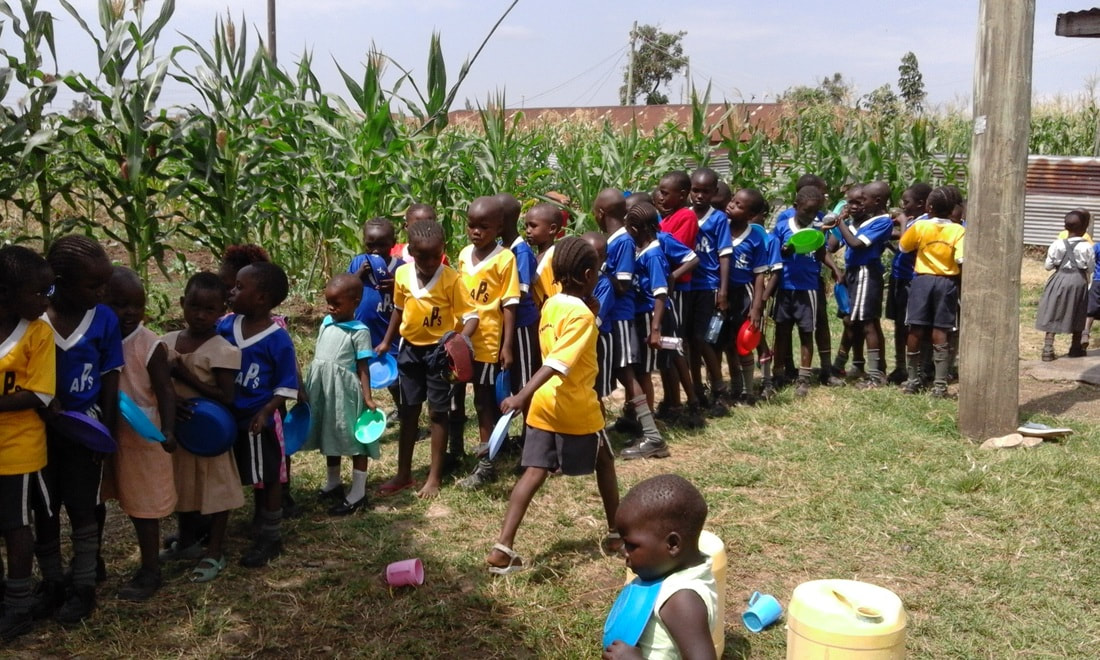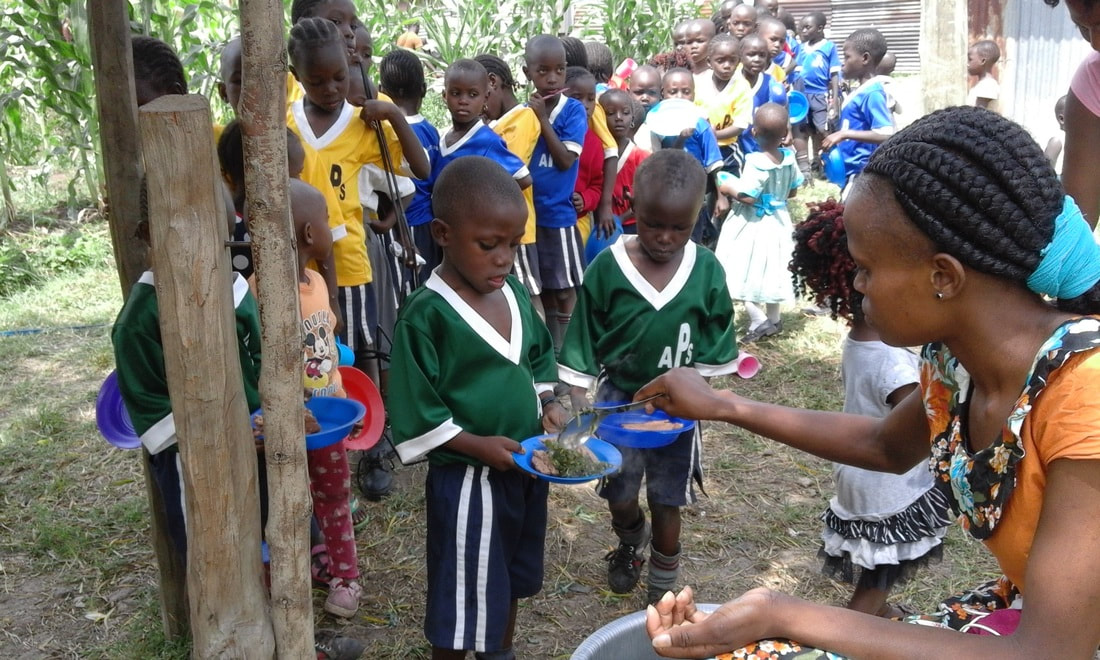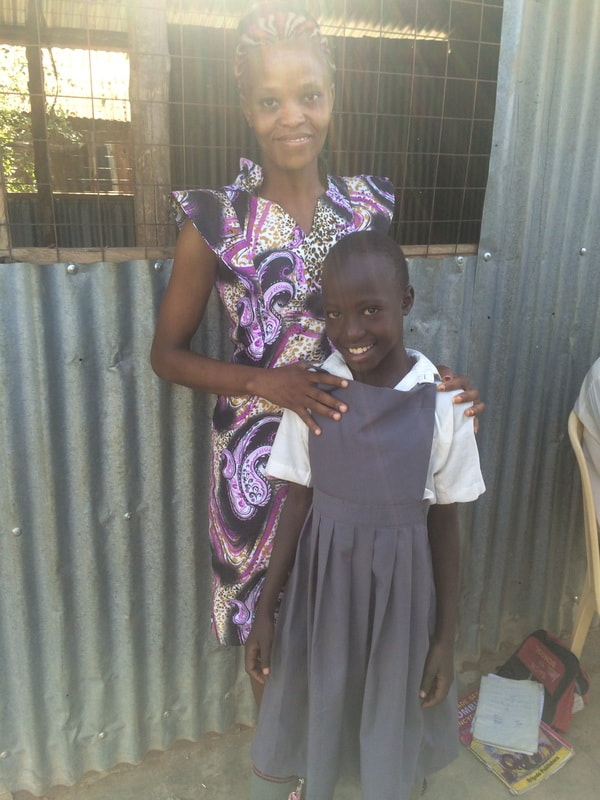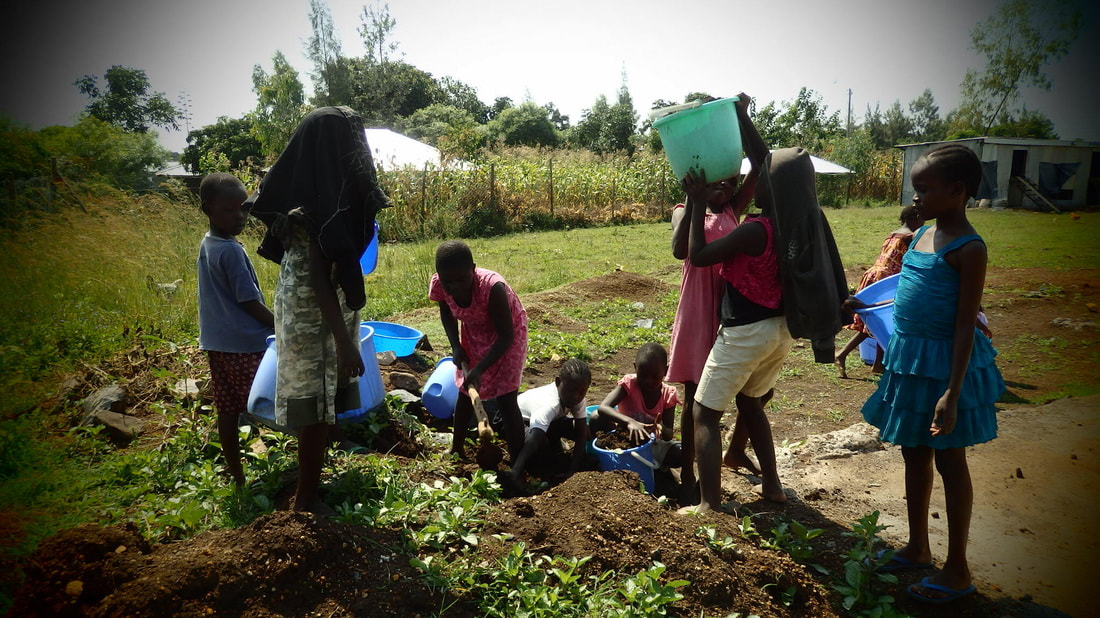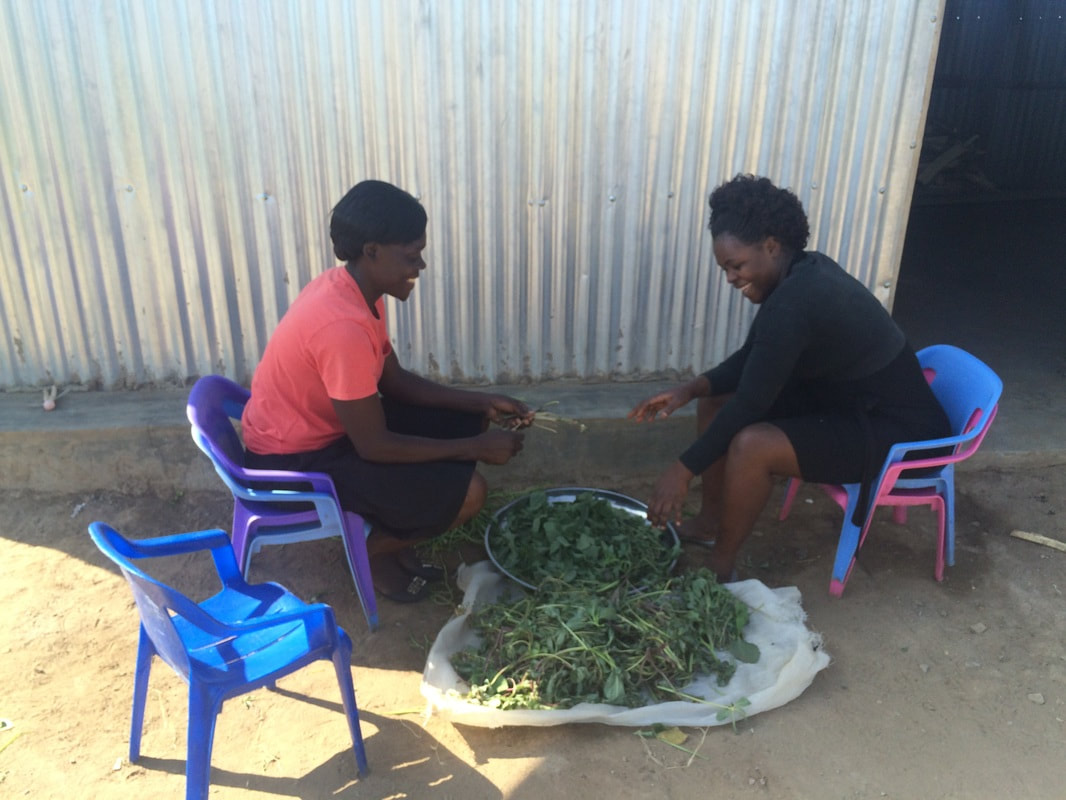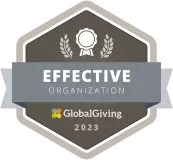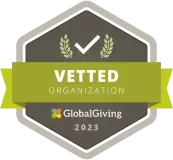Obunga Demonstration Farm: Empowering Girls Like Harriet Achieng
Posted on November 2, 2016
Growing up in the Obunga slum, life was very difficult. We lived in single room houses with our families of 5 or more siblings, sharing the same room with our parents. There was no electricity. We would always come home with tons of homework from school and run to a neighbor's who had electricity or use the dim moon light, if we were lucky.
As kids, we loved to play in the rain. This was an opportunity to jump and run around and sing our lungs out as we got drenched by the refreshing drops from above. Occasionally, there would be hailstones and we would grab our mugs and collect the precious lumps of ice, the nearest we could come close to tasting ice cubes.
Heavy rains meant that all the dirty water and debris from Kondele would be washed right into our houses, wetting all of our bedding and carrying our valuables; mostly utensils. It was not uncommon to see families draining out water from their houses after the torrential rains.
Sleeping on empty stomachs was nothing out of the ordinary. We could not afford 3 meals a day. With no education, our mothers couldn't get decent jobs in the slum. We watched helplessly as they struggled, doing anything they could lay their hands on so that we could have a better life. They washed clothes for people, brewed and sold illicit alcohol, traded on fish remains, started small businesses selling fish and charcoal, worked at construction sites, and sometimes engaged in commercial sex work to provide for us.
For many of us, clothes and shoes were a luxury. Walking around and playing in our birthday suits was so normal. What would we rather have, food or clothing? Playing naked on full stomachs was an option we would take any day.
Posted on November 2, 2016
Growing up in the Obunga slum, life was very difficult. We lived in single room houses with our families of 5 or more siblings, sharing the same room with our parents. There was no electricity. We would always come home with tons of homework from school and run to a neighbor's who had electricity or use the dim moon light, if we were lucky.
As kids, we loved to play in the rain. This was an opportunity to jump and run around and sing our lungs out as we got drenched by the refreshing drops from above. Occasionally, there would be hailstones and we would grab our mugs and collect the precious lumps of ice, the nearest we could come close to tasting ice cubes.
Heavy rains meant that all the dirty water and debris from Kondele would be washed right into our houses, wetting all of our bedding and carrying our valuables; mostly utensils. It was not uncommon to see families draining out water from their houses after the torrential rains.
Sleeping on empty stomachs was nothing out of the ordinary. We could not afford 3 meals a day. With no education, our mothers couldn't get decent jobs in the slum. We watched helplessly as they struggled, doing anything they could lay their hands on so that we could have a better life. They washed clothes for people, brewed and sold illicit alcohol, traded on fish remains, started small businesses selling fish and charcoal, worked at construction sites, and sometimes engaged in commercial sex work to provide for us.
For many of us, clothes and shoes were a luxury. Walking around and playing in our birthday suits was so normal. What would we rather have, food or clothing? Playing naked on full stomachs was an option we would take any day.
One of the most difficult experiences we faced growing up in seething poverty was having to watch our mothers struggle everyday to provide for us and wanting to help them so badly but lacking the ability/capacity to do so as children. Although they took us to school with the megre income they earned, the "education is the key to success" rhetoric seemed so delusional. We wanted to fix things now and help our parents overcome poverty. We wanted to build them good houses, buy them television sets and watch all the local comedy shows, news and cartoons like some of our rich neighbors did. We wanted to buy them all of the good food, the rice, chapati and chicken that we only enjoyed on Christmas Day. How long were we going to wait for this education to be able to help? Were our mothers going to be there when we finished our education? Would they ever get a chance to enjoy the fruits of their hard work investing in our education and putting their lives at risk for us? Were all those days that they were thrown out of their houses for failing to pay rent or when they got arrested for brewing illicit alcohol ever gonna be compensated?
Staying in school was a struggle. Paying school fees to keep us in school always meant that there was no money left to feed the family. Success for any child and youth in the slum required long term thinking from the onset. Dropping out of school to work in food kiosks and construction sites, a path many children chose, was like doing our families a favor because it saved them from the agony of looking for money to pay fees and ensured that the family could have a meal. Easy as it were, it wasn't always the best choice as many who took this path always ended up entangled in the very poverty they were trying to uplift their parents from. Like many before them, they ended up in the streets, abused alcohol and drugs to relieve stress and escape the harsh realities of life, became hopeless and eventually succumbed to death.
It might have been many years ago but things don't seem to have changed much. When Harriet walks into the class on a Monday morning and complains of a headache, teacher Annette's first instinct is to give her a painkiller to offer relief. She gulps it down, and passes out in class a few minutes later. This prompts the teacher to administer first aid to her and allow her to rest. She comes to, several minutes later and after resting long enough, the teacher takes time to talk to her to find out what is going on.
Much to the consternation of the teachers, Harriet had not had a meal for 2 days! She had taken porridge at the school on Friday afternoon only to go home and find her father missing, having been arrested at an illicit alcohol den in the slum. She lives with her dad and his absence from home meant there was no one to look after her over the long weekend.
Harriet loves school and wants to be a nurse when she grows up so that she can take care of sick people in her community. Her love for education is so strong that even 3 days without food did not deter her from coming to school on Monday morning. With the strength and determination of a woman, she sat in class, keen to learn with the rest of her classmates, despite the challenges that preoccupied her young mind. But her glucose levels failed her.
Having been raised in the slum, we resonate with Harriet's challenges and this is the reason we are inspired to work hard every day to support her and all of our girls through education.
Much to the consternation of the teachers, Harriet had not had a meal for 2 days! She had taken porridge at the school on Friday afternoon only to go home and find her father missing, having been arrested at an illicit alcohol den in the slum. She lives with her dad and his absence from home meant there was no one to look after her over the long weekend.
Harriet loves school and wants to be a nurse when she grows up so that she can take care of sick people in her community. Her love for education is so strong that even 3 days without food did not deter her from coming to school on Monday morning. With the strength and determination of a woman, she sat in class, keen to learn with the rest of her classmates, despite the challenges that preoccupied her young mind. But her glucose levels failed her.
Having been raised in the slum, we resonate with Harriet's challenges and this is the reason we are inspired to work hard every day to support her and all of our girls through education.
Right in the middle of the Obunga slum, we have a beautiful sustainable farm. We grow organic tomatoes, different varieties of indigenous vegetables, kale, onions, cabbages and herbs. Occasionally, we grow maize too!
Everyday, Harriet and her friends run to the farm at lunch hour to eat. How beautiful it always is to see them queue and wait patiently to be served!
With our community of supporters from all over the world, we have succeeded in building this farm together into a beacon of hope for our girls and community. This beautiful farm is a sign of wealth and abundant food, where our girls can walk in hungry and walk out filled and rejuvenated. When our girls walk into this farm they see food security, hope, happiness and a great future ahead. They don't fight on the queue or shove each other. Instead, they patiently wait, play on the queue and chase friends around, because they are sure they will have their share, for the farm has plenty.
With our community of supporters from all over the world, we have succeeded in building this farm together into a beacon of hope for our girls and community. This beautiful farm is a sign of wealth and abundant food, where our girls can walk in hungry and walk out filled and rejuvenated. When our girls walk into this farm they see food security, hope, happiness and a great future ahead. They don't fight on the queue or shove each other. Instead, they patiently wait, play on the queue and chase friends around, because they are sure they will have their share, for the farm has plenty.
As each girl gets their share of food at the farm, their innocent smiles and conversations between mouthfuls of delicious food do very little to reveal the challenges they face at home. Like Harriet, this could be their only meal; the only meal they are sure they will have for the day.
And for us, who work tirelessly to give these girls a platform to realize their dreams; a platform our mothers and many women from the Obunga slum never had, we know we are making a difference. We are no longer helpless and unable to do anything like we were when our mothers were struggling to raise us.
With every meal we provide at the farm, we are improving health and nutrition for Harriet and her friends and, by doing so, empower them to actively participate in class and excel.
And for us, who work tirelessly to give these girls a platform to realize their dreams; a platform our mothers and many women from the Obunga slum never had, we know we are making a difference. We are no longer helpless and unable to do anything like we were when our mothers were struggling to raise us.
With every meal we provide at the farm, we are improving health and nutrition for Harriet and her friends and, by doing so, empower them to actively participate in class and excel.
Harriet says that her favorite thing about joining Akili School is to learn at the boarding school in Obambo. When she joins the boarding school in January, she will be a member of Sustainakility club where she will learn how to grow more food in limited spaces and make gardens with her friends.
And our wonderful caretakers Mary and Nancy will be there for her.
She will be nurtured to be a doctor, fed three meals a day and excel in class. Her future is bright, because together we are creating something new, something our mothers never had, something that is more beautiful because we believe it is possible; a sustainable school for our girls and an empowered generation of women leaders in our community. Why? Because women run the world!

